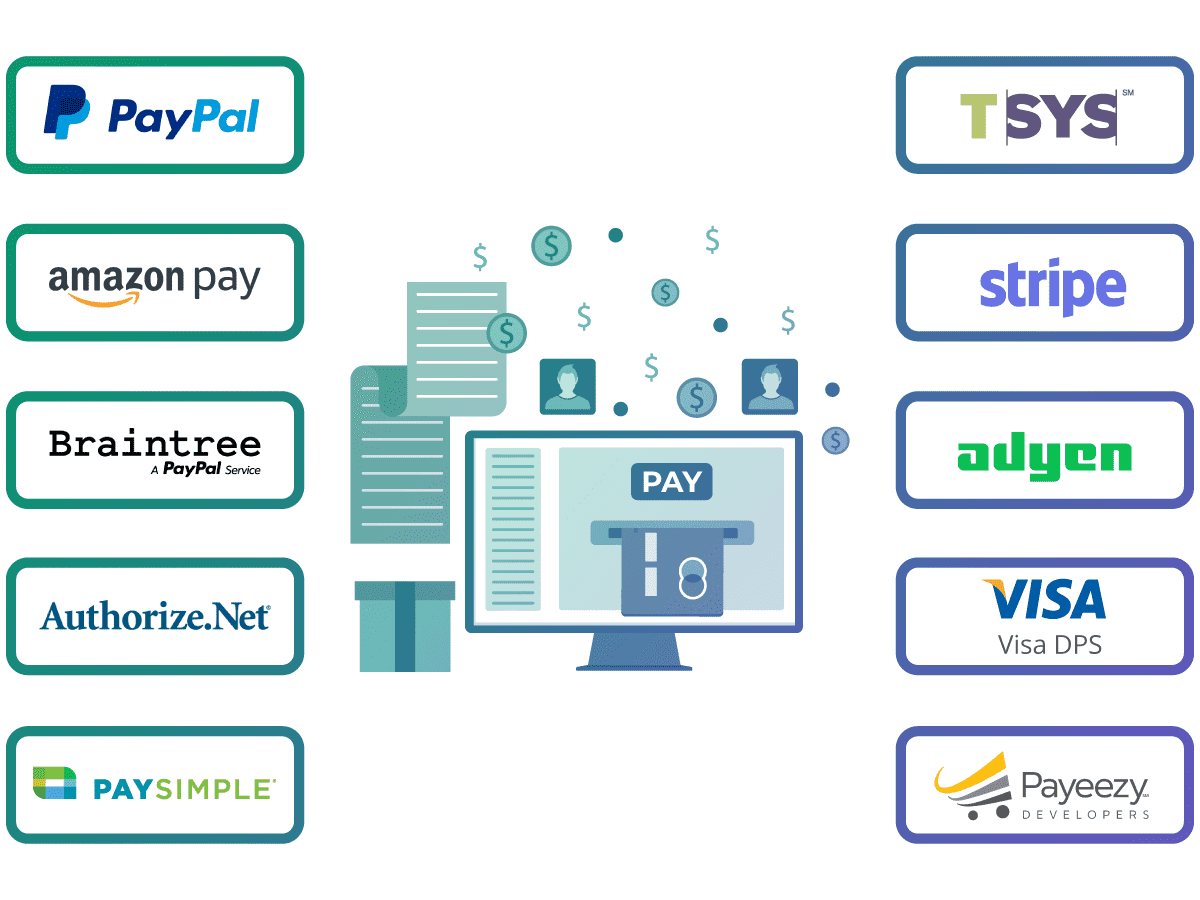An ecommerce website is not like a normal information website, An ecommerce platform requires a back end and a front with these respective features.
Back End and Front Features of an Online Store

| Back End Component | Corresponding Front end Component |
| Inventory Management | Stock availability on the digital store |
| Product Management | Searchable, browsable and navigable catalogue |
| Payment gate integrations | Online payments options for customers |
| Content Management System | Blog to promote products and generate leads |
| eCommerce Website Builder | User Friendly online store Visually appealing product pages and catalogues Professional online store with aesthetics, look and feel aligned with the brand |
| Security Measures (SSL Certificate) | https secured online shopping and online payments |
| SEO & Marketing Capabilities | Search engine findable product pages List building options Social media and ecommerce marketplaces selling. Email marketing capabilities |
| Etc. | |
Inventory Management

Inventory management is the backbone of ecommerce.
This pertains to managing stock levels and ensuring that the ecommerce website has sufficient stock available for customers. Inventory management comes with inventory tracking and stock balancing mechanisms to avoid problems such as over stocking and stock outs.
eCommerce platforms like Shopify and BigCommerce have robust inventory management features for setting up alerts and notifications to get notifications when stock levels reach certain thresholds.
These platforms offer comprehensive reports and analytics so you can strategies around well performing product lines and find ways to promote or eliminate product lines that are performing poorly.
Product Management
Product Management involves the back end capabilities of setting up well organised and searchable product categories, (catalogues), features for adding, editing and deleting product listings.
The product listing feature enables retailers to configure product titles, descriptions, prices (and discounts if any), and all other details that come with details such as SKU numbers, etc.
Functional inventory management and stock management enable you to ensure stock is always available in ecommerce stores and that you do not over stock. This also ensures that you can present a well-structured catalogue on your digital front store which is easy to browse, search and navigate.
Payment gateway integrations

Without payment gateways, there is no ecommerce. Payment gateways integrations enable ecommerce websites to connect to the external and trusted online payment services to enable seamless online shopping.
For example, if you are selling products and services online you want to make it possible for your customers to pay conveniently with their credit/debit cards and digital wallets. Payment gateway options make this possible.
Which Payment Gateways are suitable for your eCommerce Website
When setting up payment gateway options you need to consider the best options for location of your customers, and also make sure that as a merchant you are eligible to receive payments from that payment (gateway) services. Just give an example: Stripe is one of top performing online payment services globally, however this service does not work in some countries.
Also pay attention to transaction fees that come with each payment gateway as this directly affects your business model.
Transaction fees vary from payment service to payment services. These fees also vary depending on the ecommerce pricing plan you are on, so you need to do your homework.
A good number of credible and secure payment gateway options are critical for the success of your ecommerce business. The rationale for online shopping is the ability for customers to order and pay for the stuff they want online – on secure ecommerce websites.
Also pay attention to transaction fees that come with each payment gateway as this directly affects your business model.
Transaction fees vary from payment service to payment services. These fees also vary depending on the ecommerce pricing plan you are on, so you need to do your homework.
A good number of credible and secure payment gateway options are critical for the success of your ecommerce business. The rationale for online shopping is the ability for customers to order and pay for the stuff they want online – on secure ecommerce websites.
Content Management System

Content marketing is an important part of ecommerce. eCommerce by nature is digital and digital marketing is the most effective approach to generating leads and sales for an ecommerce business.
Content marketing is a great way to leverage informational and transactional content to generate leads for an ecommerce business. For this reason, Content management (CMS) becomes an important component of an ecommerce website.
WordPress is a leading content management system globally and its popularity speaks, by and large, to the uptake of content marketing by most brands to promote their products/services and digital presence.
If your business already has a strong content presence on a WordPress platform, you may want to consider an open source ecommerce platform like WooCommerce which integrates seamlessly with WordPress.
The challenge with open source platforms like WooCommerce is that these tend to incur lots of costs in development and customisations (for example if you need a number of payment gateways you will need to get a plugin or hire a developer to do it).
On the other end, solid ecommerce platforms like Shopify, BigCommerce and Wix already have content management systems built into their ecommerce website creators.
A content management system will enable you to build an audience around your brand, generating a captive lead base for your products and services.
eCommerce Website Builder
If you are going the route of leveraging an existing ecommerce platform as opposed to creating your own ecommerce website from scratch, a robust ecommerce website builder is what you need to build a solid, secure and user friendly ecommerce website.
The website builder must be comprehensive enough to enable you to customize your store theme according to your branding.
Also ensure your website is hosted in a SSL secure server to ensure maximum security for your online store and to protect your customer and store data.
Shopify Security Measures
As an ecommerce platform, Shopify takes security seriously. The platform has a number of security measures such as: SSL encryption, Secure Payment Gateways, Two factor authentication (2FA), Automatic Updates, Distributed Denial of Service (DDoS) Protection, Fraud Analysis Tools, Daily Backups, Secure Hosting Infrastructure, Risk Analysis for Payments, Shopify App Security, Privacy and Compliance, Security Documentation and Resources, Customer Account Security, Shopify Plus Enterprise Security Services
SEO & Marketing Capabilities

Search Engine Optimisation is what ensures that your store blog posts as well as digital store product pages are findable by search engines and can be indexed and ranked against relevant search queries.
This enhances the traffic prospects for your store and increases your sales volumes. Beyond SEO, An eCommerce website should also have email marketing tools for building a subscriber list.
The website should also have social media integration capabilities to enable you to push your products and sell them right where most of your target customers like to spend time: which on social media platforms.
Reporting Tools & Custom Report Features
Ensure that your ecommerce website has robust reporting and analytics tools to give you data and insights on traffic and sales volumes and patterns.
These features are crucial for enabling you to make well informed decisions to promote well performing product lines, implement mechanisms to boost poor performing ones.
Report data and insights will also enable you to see which marketing methods yield the best results so you can focus and invest more in what works for your ecommerce business.
Also consider: What Is A Good Store Name For Shopify?
Growing your Ecommerce Business
To grow your ecommerce business you need to be intentional in investing in an omni-channel marketing strategy that includes: email marketing and social media campaigns, content marketing, etc.
You should also be intentional in entrenching a positive shopping experience for your customers with efficient support service, implementing a loyalty program, and strategically collaborating with influencers.
You should also consider running paid advertising campaigns and enable customer reviews and testimonials.
Final Thoughts
Remember that setting up a secure and functional ecommerce website (either as a stand-alone or on an ecommerce platform) is just one piece of the puzzle.
Running a successful ecommerce business platform requires approaching your business execution strategically. Be intentional about marketing, creating a positive shopping experience for customers, and managing your inventory efficiently. Have a plan in place to scale your ecommerce business either through opening new markets or adding new product lines.
All the best in your journey!

